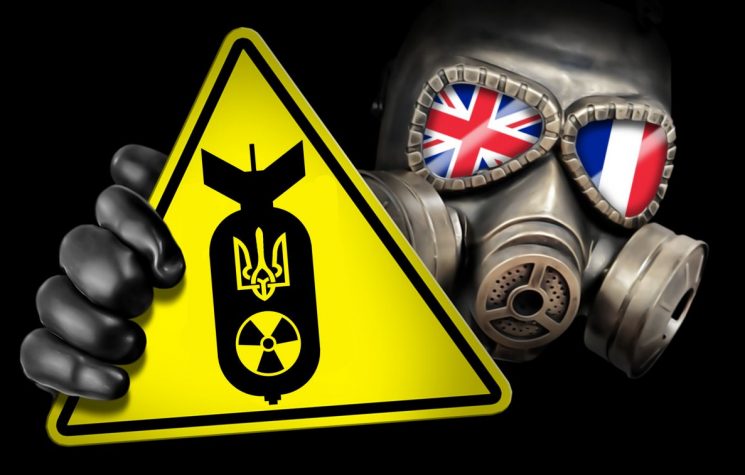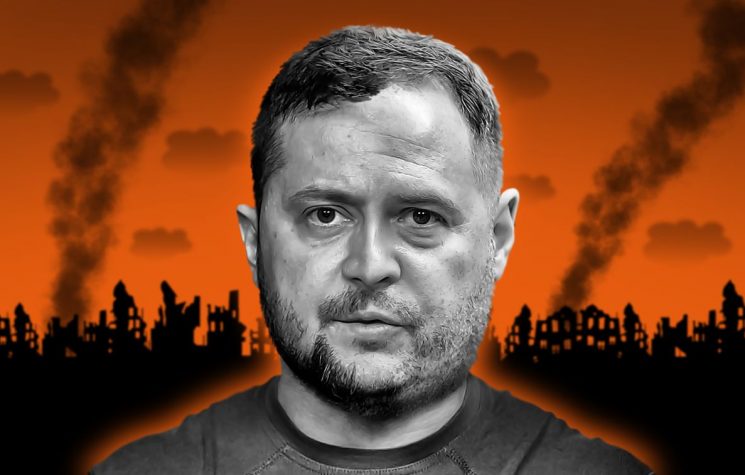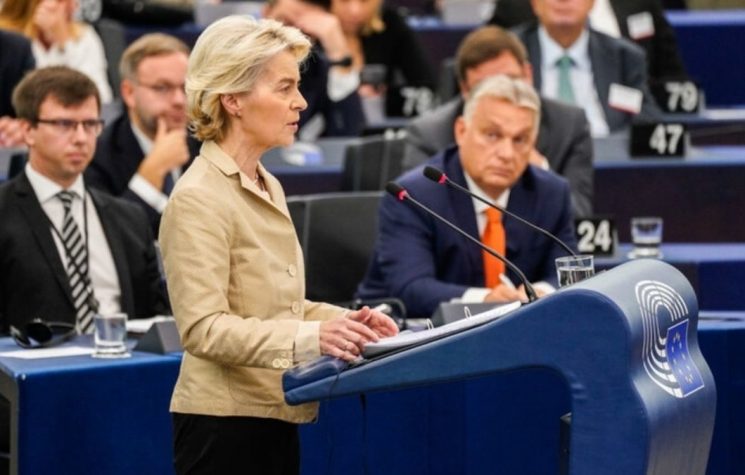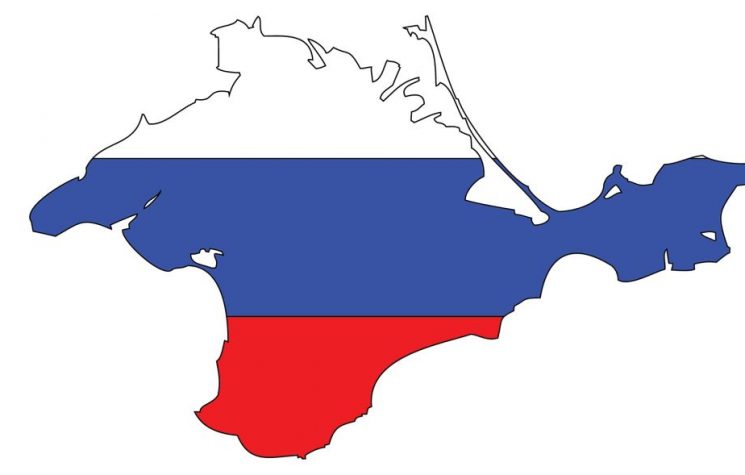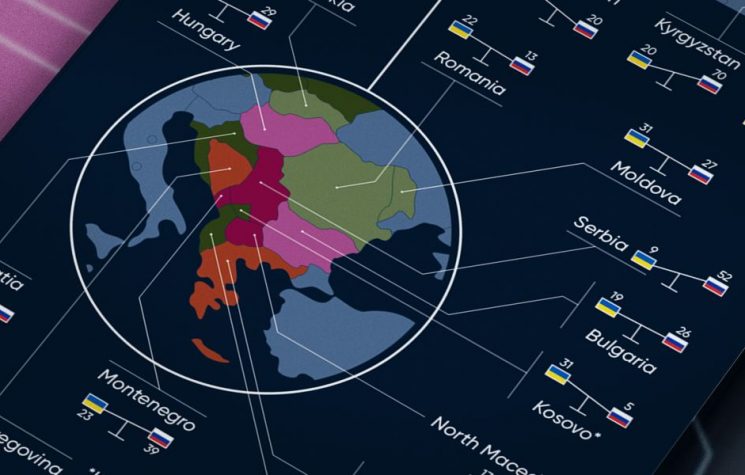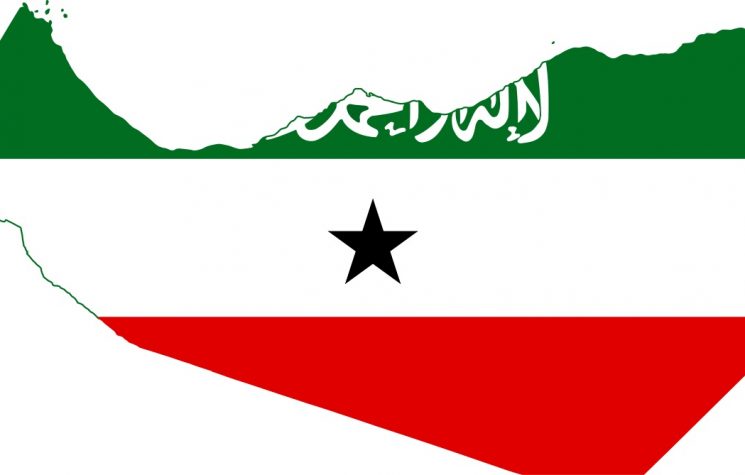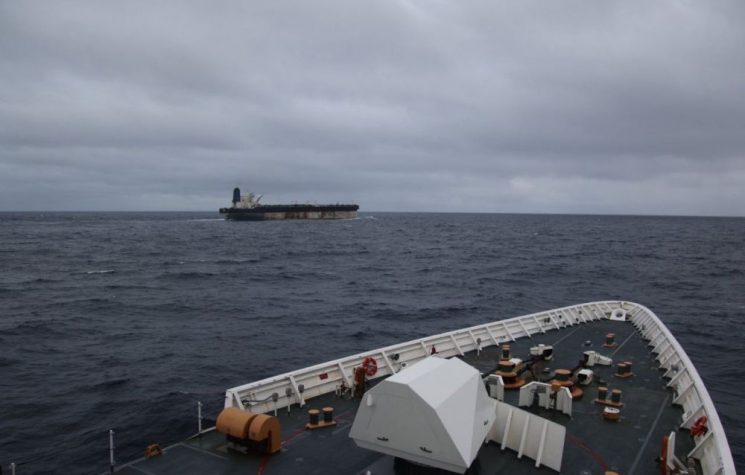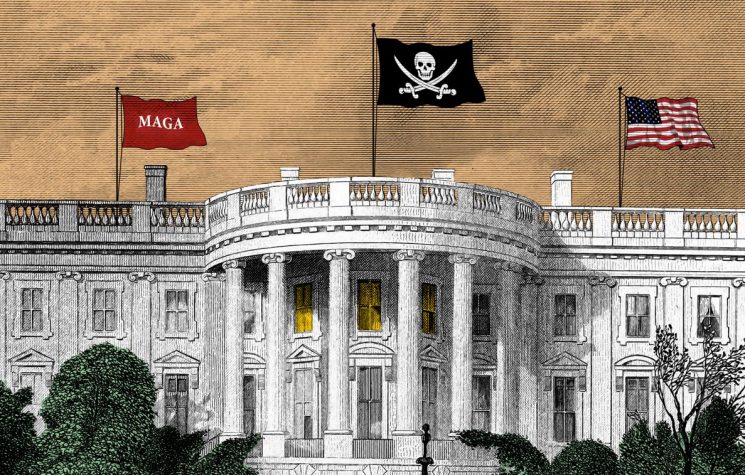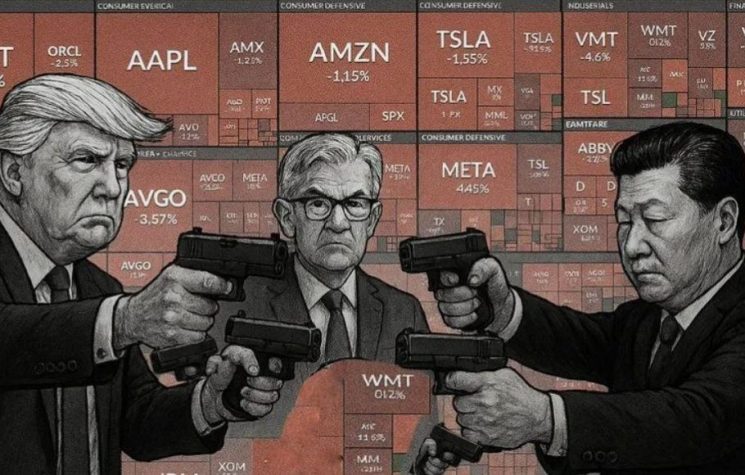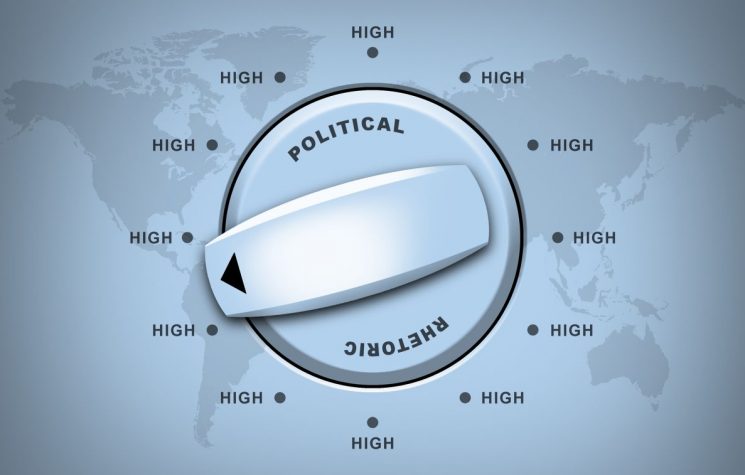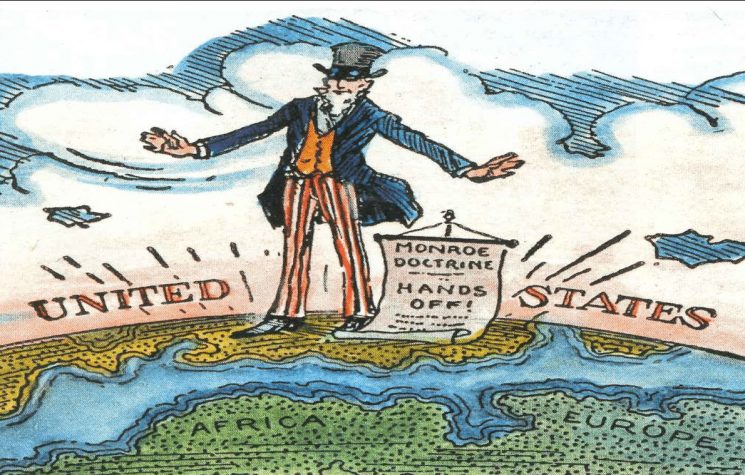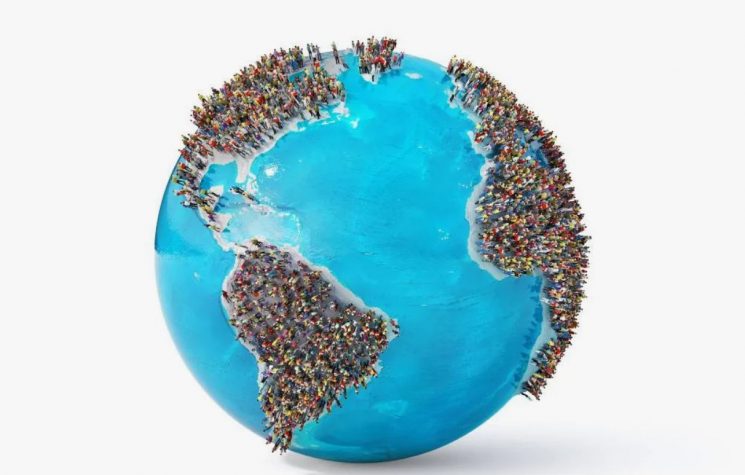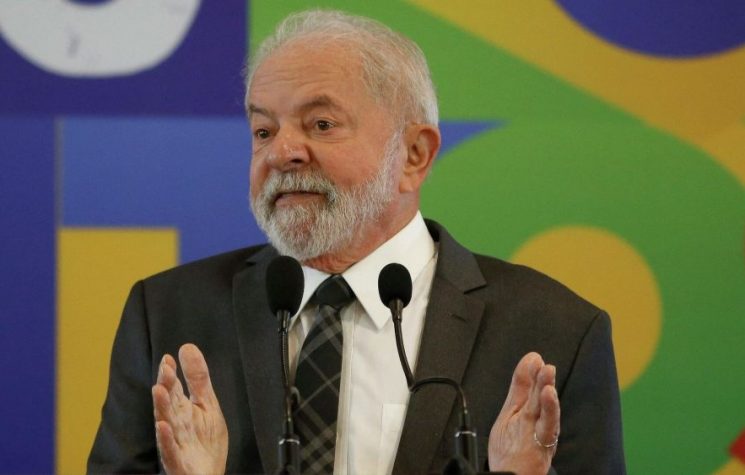How much longer will we allow the U.S. and its vassals to dictate the rules by which we judge the world?
Contact us: info@strategic-culture.su
There’s a story of a professor at the University who at the first International Law lecture debuted in front of his students saying, “International Law does not exist!”. The students were very puzzled: some remained silent for several minutes, others began to speak softly commenting his words, and some left the class thinking the professor was crazy. One girl raised her hand and asked, “Professor, what do you mean? This is an International Law class and you are a teacher expert in this subject, it’s obvious that International Law exists.” The professor repeated with more seriousness, “International Law does not exist!” And he began the course with this premise, explaining in detail the meaning of these very strong but equally justified words.
How we got to where we are now
Let us start at the beginning, with a necessary explanation to clarify.
International Law is defined as the system of norms and principles that govern relations between states and other international actors.
Beginning with the Peace of Westphalia in 1648, a world order based on the gradual constitution of the modern state was established, and from there, we began to speak of the first “international community.” From the structure presupposed as equal of such a community, International Law has been characterized by the fact that the functions of production, ascertainment and coercive implementation of norms are carried out by the subjects themselves or by supranational organs prepared, according to a model of functional decentralization. In this way, International Law is a separate order from the legal systems of individual states.
However, it is necessary to better understand so called “world order” in this way.
World order refers to the international distribution of power and legitimacy that marks the system of behavior of states and non-state actors so that order prevails over chaos. Therefore, the topic of world order must address sociological theories of human nature, economic systems and political systems.
After the collapse of the Roman Empire and the subsequent spread of power in Europe, the Peace of Westphalia in 1648 established state sovereignty and the balance of power as the main pillars of order. The order is based on mutual commitment to collectively balance expansionist and hegemonic drives in order to preserve the balance. Universalist ideals must be rejected to the extent that they become instrumental in promoting inequality and justifying expansionism.
The Westphalian international system is defined by international anarchy, in that the state is the ultimate sovereign and each state is in perpetual competition for power and survival, to the extent that strengthening security can cause insecurity for others. Over the centuries, there have been idealist temptations to transcend international anarchy with universal values and a hegemonic distribution of power that aims to undo the entire Westphalian order. All this led to a series of alternating attempts to impose a universalism that would bring relative peace, prosperity and progress, which in political philosophy we used to call Pax, from the Latin for “Peace,” and we had the Pax Romana, the Pax Britannica, the Pax Americana and so on.
After the Cold War, the United States emerged as the global hegemon in terms of military, economic, cultural and political power. The modern Westphalian world order, based on a balance of power among equal sovereigns, was thus challenged by its claim to hegemony and universal liberal democratic values. Liberal hegemony demanded and sought to legitimize sovereign inequality by reworking the previous international order of sovereignty for civilized states and reduced sovereignty for “uncivilized” states. Full sovereignty for the liberal West and limited sovereignty for others.
Initially, there were great grounds for optimism that faith in the universal values of free markets, democracy and global civil society would create a completely new and benevolent world order. The Berlin Wall came tumbling down, communism in Eastern Europe was abandoned, the former rivals of Russia and China prioritized friendship with the United States and the West in general in their foreign policy, the EU took on a socializing role by conditioning membership on liberal democratic reforms, the Arab Spring appeared to reform authoritarian governments in the Middle East, the expansion of NATO brought a sense of security to states that had lived under Moscow’s rule for decades, the economic rise of China lifted hundreds of millions out of poverty and advanced the world economy, and the processes of globalization seemed to bring the world closer together.
Thus, it was thought that globalization under Pax Americana would usher in a new era of stability and prosperity. One could speak of a world order based on liberal hegemony, in which liberal democratic values were spreading under the seemingly benevolent leadership of the United States.
Then something went wrong
The assumption of benign global hegemony, that economic and political liberalism was a silver bullet to transcend power politics, turned out to be a liberal illusion fueled by hubris.
New international geometries have taken hold. NATO expansion predictably inflamed tensions with Russia as Moscow reasonably perceived it as an existential threat, while China’s simple economic rise became a challenge to U.S. global primacy. Globalization as a neoliberal, Westernized-centric process has become unsustainable, in fits and starts with the U.S. stock market crisis. The excesses of liberalism are now repudiated within the West and outside it, causing polarization within societies and the international system.
In all of this, International Law has always been seen as a kind of “guarantee” above the parties, to be appealed to indiscriminately, a kind of neutral power that could settle disputes… or play in favor of the stronger.
Ipso facto, International Law in the twentieth century became United Nations Law, with the UN as the macroscopic entity capable of imposing its dominance. But this hierarchical advantage was not the subject of democratic discussion, let alone confrontation among the various world players: it was an arbitrary and unilateral choice, that of the United States of America, which enjoyed the advantage of victory in World War II, rapidly and effectively expanding its hegemony, both military, cultural, political and especially economic, through the extension of the dollar as the global currency of comparison.
An intentional choice? Perhaps. A fluke of history? Equally likely. What is objectively detectable is that we have arrived at the present day with an American-centric International Law, with transnational organs deputed to various functions all reporting to the main Organization, headquartered in New York. Even the various European international institutions and courts have a dependence on Lady USA.
And we come to the present day
From here it is easy to see why, today, we have a crisis of International Law and an obvious problem of trust in its so-called institutions.
Equally complicated is the transition to an International Law of a multipolar character (more on this in a future article).
Are the events themselves that have caused people to lose confidence in this branch of Law. For there is very little of “law” left. In Kosovo, NATO was allowed to do whatever it wanted, violating Serbia’s territorial sovereignty and creating the puppet “state” of Kosovo; the U.S. can “export democracy” with bombs by attacking in the Middle East whenever it wants, because it is done in the name of “civilization.” in Ukraine, human rights were valid until a few years ago, when the Kiev regime was put on trial for child trafficking and a fratricidal coup, then once the new “villain” was found magically those rights disappeared and the perspective was reversed; Netanyahu can safely make phone calls from UN headquarters and order a carpet bombing of a city in a country, declaring a war, without anything happening to him, despite the fact that he is a proponent of a genocide that has been going on ruthlessly for more than a year. This macabre and dark “new normality” is an antidote to the lies of International Law – or at least how we have been made to believe and practice it for a century to date.
The United Nations and NATO are two American entities; they have the matrix. Out of a rotten and corrupt matrix cannot come any kind of Law that is beneficial to humanity. They promoted the writing of international documents and treaties that they then submitted to the whole world, proposing their own values and rules as valid for all, and when a country does not accept those rules, there it is accused of violations, incivility and cruelty. A rather funny detail is that many of the International Law documents produced by the American leadership, have never been ratified by American governments. This further underscores the paradox of power.
Was the professor right?
To take up the story we told at the beginning-a fact that really happened-we need to answer the question: does, then, International Law exist?
If we mean the academic definition, yes, it exists; we are full of manuals, treaties, declarations, resolutions. There is certainly sufficient production of material to be able to speak at least bureaucratically about “Law.”
If, on the other hand, we talk about what Law actually is and what it should do, as a tool in the life of a society, then the professor was right. There is no such thing as International Law: there is United Nations Law, there is what has been hegemonized and diffused over the last century, according to a world order that’s now at its last breath and, therefore, no longer has value, no longer has efficacy, no longer enjoys credibility. This fact, however unpleasant, we must assume with intellectual honesty.
New power centers have emerged that are laying the foundations for a multipolar system, some according to the principles of the Westphalian system and in any case in continuity with it, others are exploring different assumptions. What is certain is that the emerging world order repudiates Western-centric globalization in terms of the domination of maritime powers, economic and political liberalism, and a liberal global civil society. The West can no longer impose the conditions for the acceptance of states as full members of the community of sovereign states. The international distribution of power, ideals, rules and the nature of diplomacy are being reorganized.
This provocative reflection must prompt decisive action. How much longer will we allow the U.S. and its vassals to dictate the rules by which we judge the world?
For Law, come what may, is a matter of Justice.










